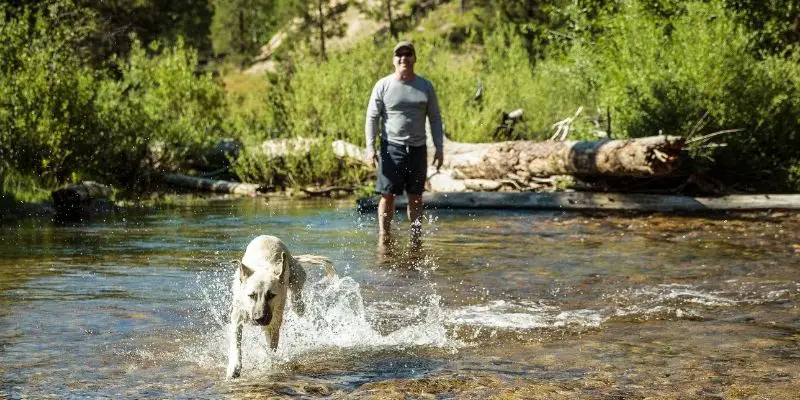My dog doesn’t like me. It’s a simple fact that some families have come to accept over the years. However, there are still some things about my canine companion that we don’t understand. If you, like me, believe that a dog doesn’t like you, don’t worry — it’s probably something you can fix. It’s also possible that it isn’t outright dislike in many situations. But let’s start with the reasons why a dog might not like you.
Do you have a specific question about the reasons why your dog doesn’t like you? Then use the table of contents below to jump to the most relevant section. And you can always go back by clicking on the black arrow in the right bottom corner of the page. Also, please note that some of the links in this article may be affiliate links. For more details, check the Disclosure section at the bottom of the page.
Here's what we'll cover:
- Reason #1. Your furry friend is threatened
- Reason #2 Fear
- Reason #3. Lack of trust
- Reason #4. You are being unpredictable
- Reason #5. Big changes
- Reason #6. Pup likes someone else better
- Dog dislikes you: major signs and what to expect
- If a dog does not trust you, it will follow your movements
- If your dog does not look in your eyes, it is not good
- If a dog refuses to take treats from you, it may not like you
- A dog could be attempting to keep their distance from you
- If a dog’s fur is standing up, it might be scared by you
- If a dog is afraid, it might cower or hide
- The dog seems nervous around you
- My dog doesn’t like me. How to fix it?
Reason #1. Your furry friend is threatened
Dogs are not moralists. They will not hold a person accountable for their ideas or disposition. They’ll make judgments based on their experiences with particular people and entire populations. A dog may dislike being in the presence of a person due to issues such as discomfort or fear of them.
Reason #2 Fear
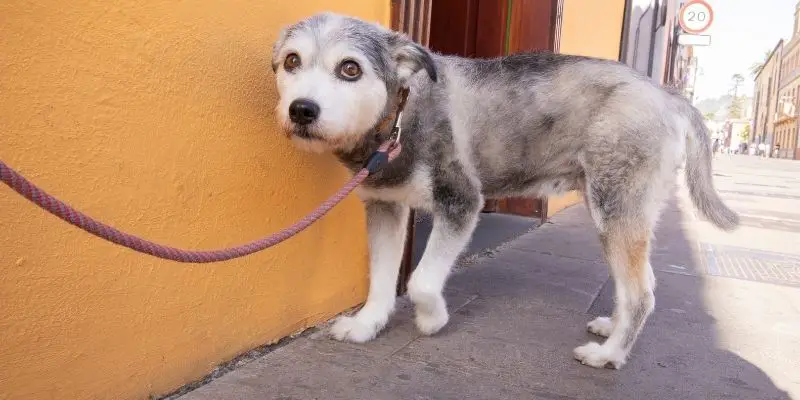
Consider how you might have lost your temper with your puppy as they ran across a busy street and scolded them when they returned. Perhaps someone advised you to utilize an e-collar or some other type of punishment to stop a particular annoying behavior.
Another common one is forcing your dog to do something like get in the crate rather than using positive enforcement to make it a good experience.
This sort of thing might make some sensitive and soft-handed dogs fear you. They become hesitant and appear to ignore you occasionally. Other dogs will become withdrawn and sad.
Reason #3. Lack of trust
When we acquire a new dog, it’s not unusual for all concerned to have a period of adjustment. Some dogs will be instantly welcomed into the family; others will need more time to learn how to rely on you. It might be owing to their prior experiences.
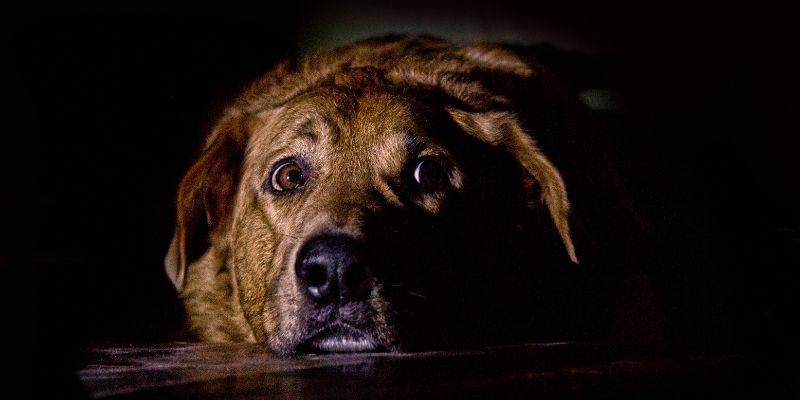
Reason #4. You are being unpredictable
Dogs require routine. It helps them to feel secure and at ease in their environment. If we feed our dog at a specific time every day before changing the time, the dog may become confused. Anxiety in dogs may result if we feed them inconsistently as a whole. The same may happen if we stop taking them for walks, giving them affection, or denying them any attention on which they have come to rely.
Reason #5. Big changes
Changes in your dog’s environment, such as adding a baby to the household or moving, may also cause behavioral problems. For some dogs, it might be challenging to adjust to a new home over time. This is especially true if they have less space or something in the new house that makes them uncomfortable. It’s also possible that the dog will not like a new partner or get along with our current one. It’s even possible that the dog may reject us for some odd reason. However, we must understand why to correct it so that everyone may live in peace and harmony.
Reason #6. Pup likes someone else better
Occasionally, certain breeds like the Shar-Pei will become especially attached to one family member and lose interest in everyone else.
Furthermore, suppose you’re at work all day, and your puppy’s only other companion is another dog or someone who is at home. In that situation, they may choose to bond more with the friend there rather than with you.
Puppies with a strong play drive are more likely to bond with the individual who plays with them the most and consider this person fascinating. The good news is that, for this sort of dog, treatment is relatively straightforward. All one has to do now is be as interesting as possible!
Dog dislikes you: major signs and what to expect
If a dog perceives you as threatening in any way and dislikes you, they might bite or growl at you. But how about less obvious things you should be looking at?
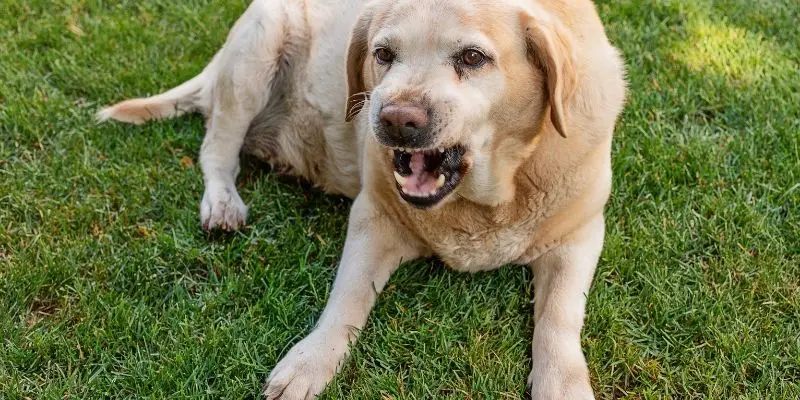
If a dog does not trust you, it will follow your movements
If a dog appears to be keeping an eye on your every move, take notice. This might indicate that they don’t trust you or are nervous around you.
Dogs that are concerned about someone may look at them or track their movement from a distance.
If your dog does not look in your eyes, it is not good

Sometimes, a dog that doesn’t want to be around you will follow you carefully; other times, they may deliberately ignore you. Every time you try to get close, you should keep an eye on it. If a dog isn’t your biggest fan, it won’t make eye contact with you and will retreat since dogs typically prefer flight to fight.
If a dog refuses to take treats from you, it may not like you
Everyone knows how much dogs enjoy a nice treat. As a result, if a dog avoids a particular food just to avoid being near you, it indicates that they might not feel at ease in your presence. When a canine is avoiding a treat from someone they don’t trust, they may show the whites of their eyes.
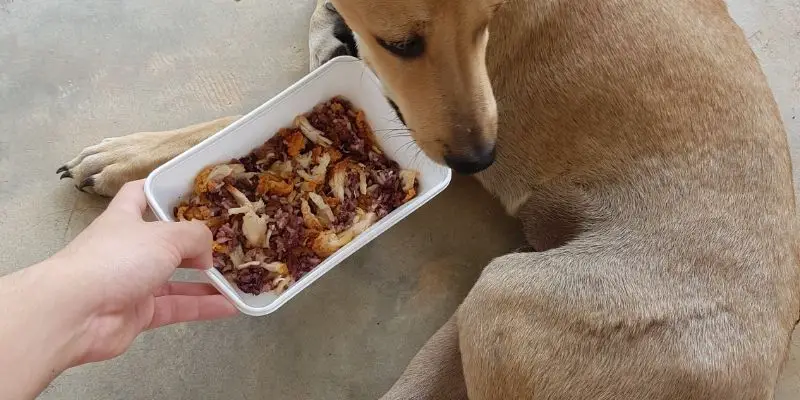
A dog could be attempting to keep their distance from you
When you come by, a dog who isn’t thrilled with you is likely to quickly depart. Aside from avoiding eye contact and ignoring you, they might just walk out of the room.
Dogs will choose destructive behavior far less frequently than they will disengage.
If a dog’s fur is standing up, it might be scared by you
Look for a dog that hunches its back or curves it upwards since this might indicate that the dog is about to pounce or that it is afraid. Pay attention to a dog’s hackles: the hairs along a dog’s shoulders and spine that rise when an animal is alarmed or angry.
If a dog is afraid, it might cower or hide
Remember, a dog that doesn’t like you may simply be scared of you — and this fear can show itself physically.
If the dog is afraid, he may crouch or cower, withdraw his ears, tuck his tail, conceal himself, or tremble.
The dog seems nervous around you
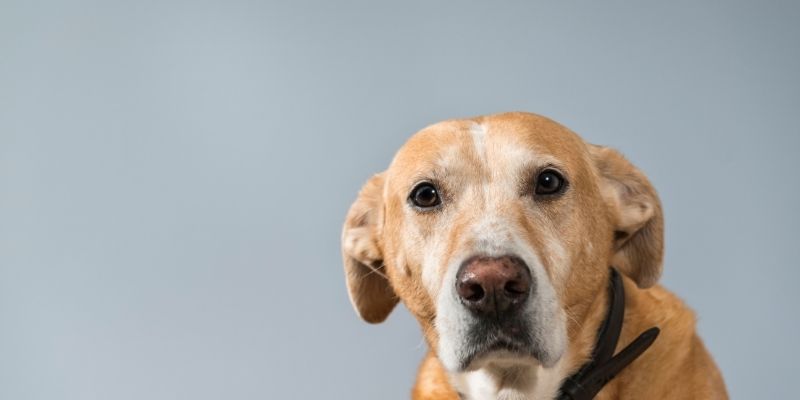
Dogs can get nervous ticks, much like humans. When a dog is around someone who makes them feel nervous, they may exhibit such symptoms as rolling their eyes and drooling excessively.
When dogs are not tried, they may exhibit behaviors such as licking their lips or yawning. These are similar to a person who fiddles with their hair or bounces their leg when uncomfortable.
My dog doesn’t like me. How to fix it?
The more your dog thinks of you as “good things happening around this person,” the more the pup will be eager to be around. Continue reading to discover how to increase your pup’s admiration for you.
Smell nice for your pup
It’s no secret that a dog’s sense of smell is highly acute. When meeting a new dog or person, the first thing they do is sniff them. If they like what they’re smelling and the encounter goes well—BAM, best pals for life. If they detect something frightening, perplexing, or repulsive, they will follow their nose to acquire a more pungent scent.
Dogs that are afraid of other dogs will avoid people who smell akin to unknown canines. Citrus, vinegar, mothballs, and rubbing alcohol are all smells that dogs tend to avoid.
Use your voice
Although dogs aren’t fluent in your language, they are experts at detecting a tone of voice. Dogs’ brains responded to the tone of voice of the speaker, according to scientific research published in 2016.
When the person used a high-pitched, cheerful voice, the dogs’ reward centers became activated in the study. The happy-sounding individual was greeted enthusiastically by the dogs. Still, they responded unfavorably to or ignored individuals who spoke with deep or angry voices.
Adjust your body language
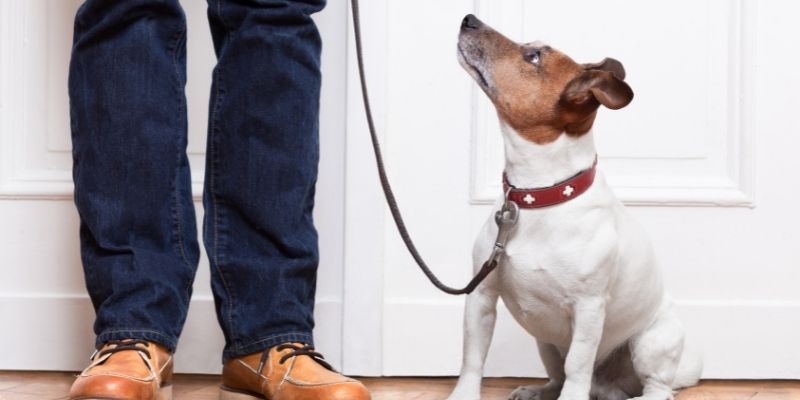
While your dog is listening to a person’s tone of voice, they’re also looking at their body language. Dogs rely on body language to bridge the communication gap. When comparing how people interpret certain bodily motions with how dogs perceive them, the difficulty arises.
To certain species, eye contact means different things. Someone who doesn’t make direct eye contact is viewed as shifty, untrustworthy, or illegal in between people. In a dog’s world, however, direct eye contact is impolite and even threatening. A sign of respect or deference is giving “soft eyes” or looking slightly to the side. Dogs despise being bent over, making expansive gestures with arms, erratic motions, and forcing a dog into a hug.
To pet or not to pet
Some dogs enjoy being snuggled and held, while others are only tolerant of touch. If your dog doesn’t want to be petted, but you continue to try, he’ll probably avoid you. However, if the dog enjoys being patted, a doggie massage may enhance your connection.
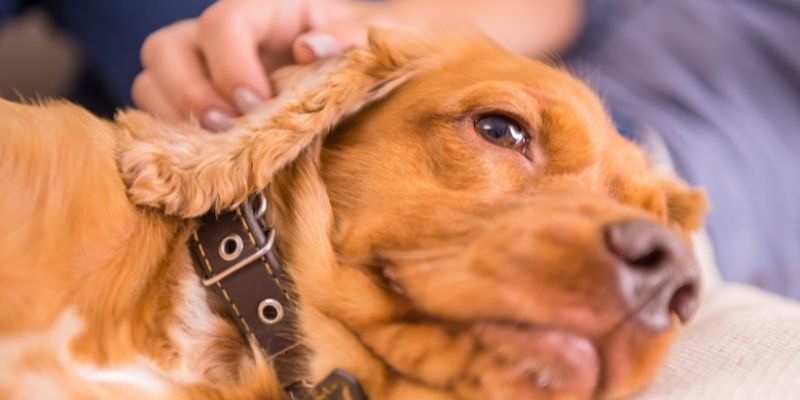
Increase the playtime
The more games and fun you can share with your dog, the stronger your relationship will be, whether it’s a game of fetch or hide-and-seek in the home. Walks are also a fantastic way to strengthen your bond. Take your dog on exciting excursions to the park or pet store for some delicious chewy bones.
Make changes in the way you feed the dog
Feeding your dog their meals will make them more reliant on you, but even more so is doing good reinforcement training. Most dogs will be ecstatic and wag their tails with enthusiasm when seeing you if they start to associate you with delicious rewards.
Talk to a professional
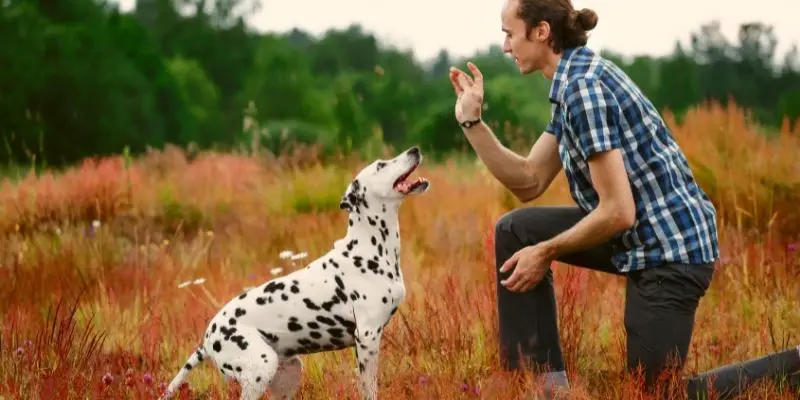
Unfortunately, even after utilizing the above techniques, a dog may still be allergic to us. In these situations, you should seek help from a competent canine ethologist. They are professionals who will be able to assess your dog’s mental state and look at your circumstances with a critical eye.
They can create a new training plan, offer you some personalized guidance, and generally strengthen your connection. You’ll also need to visit a veterinarian to ensure that the dog hasn’t any underlying health problem that might account for the change.
Thanks for the blog graphics: Canva.com

Thanks for the blog graphics: Canva.com
Doghint.com is a participant of several affiliate programs. The list includes (but not limited to) the following: VigLink, Refersion, ShareASale, and Amazon Services LLC Associates Program, an affiliate advertising program designed to provide a mean for us to earn fees by linking to Amazon.com and affiliated sites. Doghint.com does not intend to provide veterinary advice. All published articles are meant for informational purposes only and not substitute the professional veterinary consultation.

